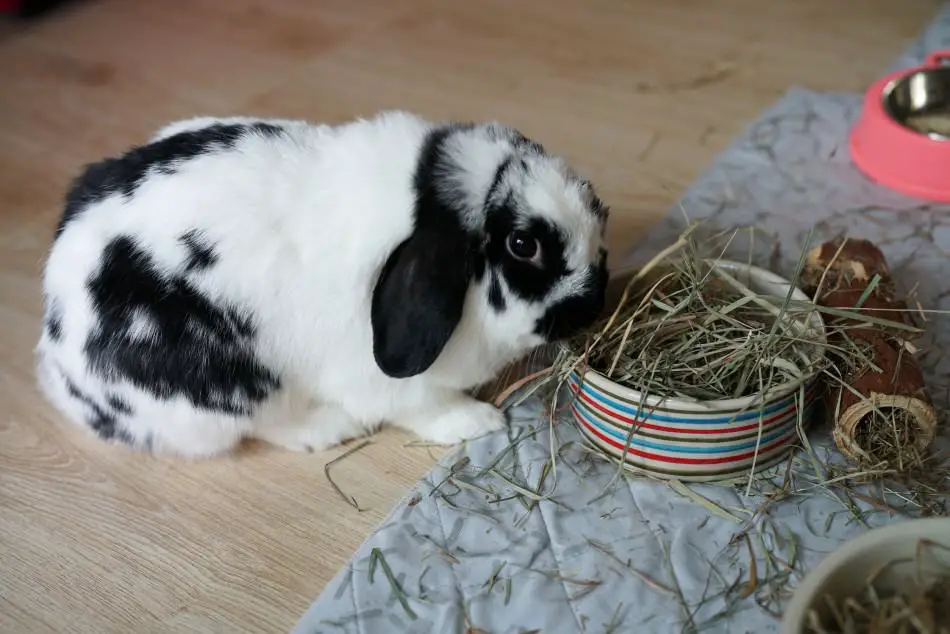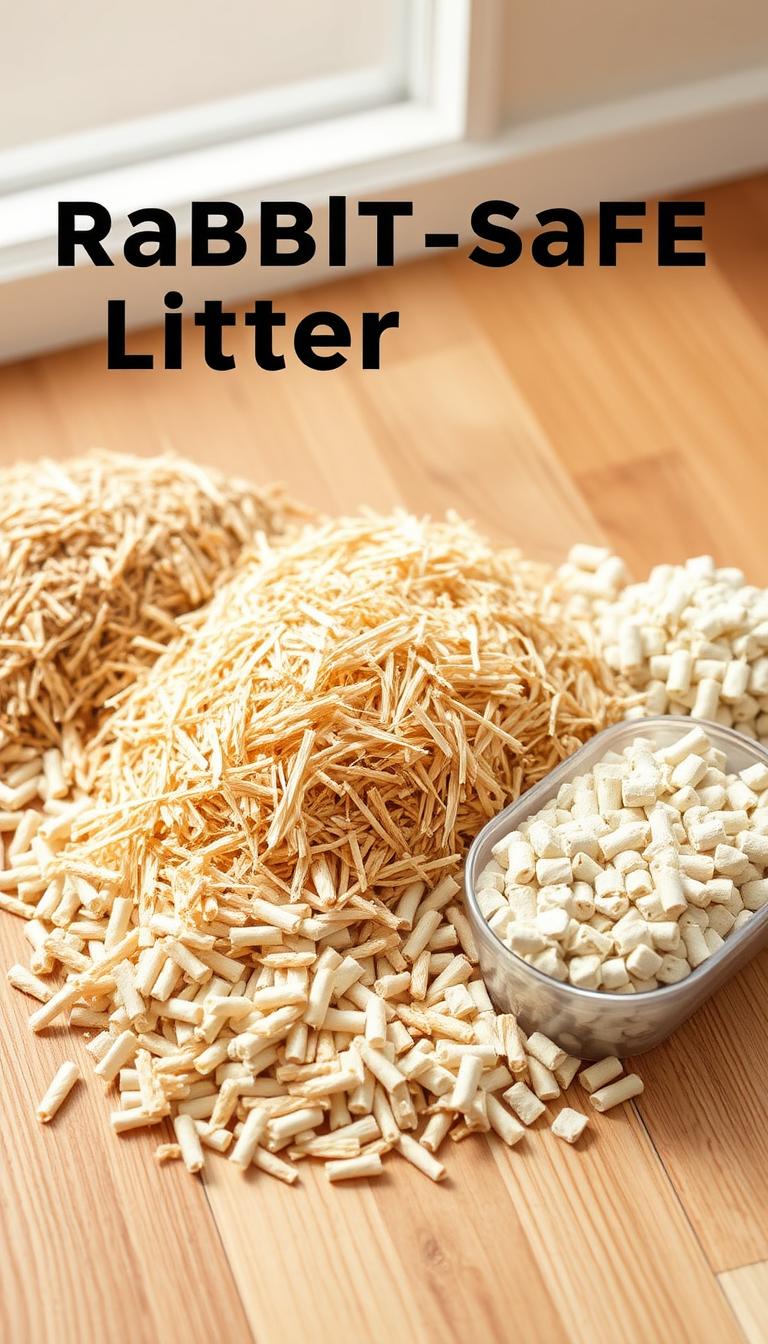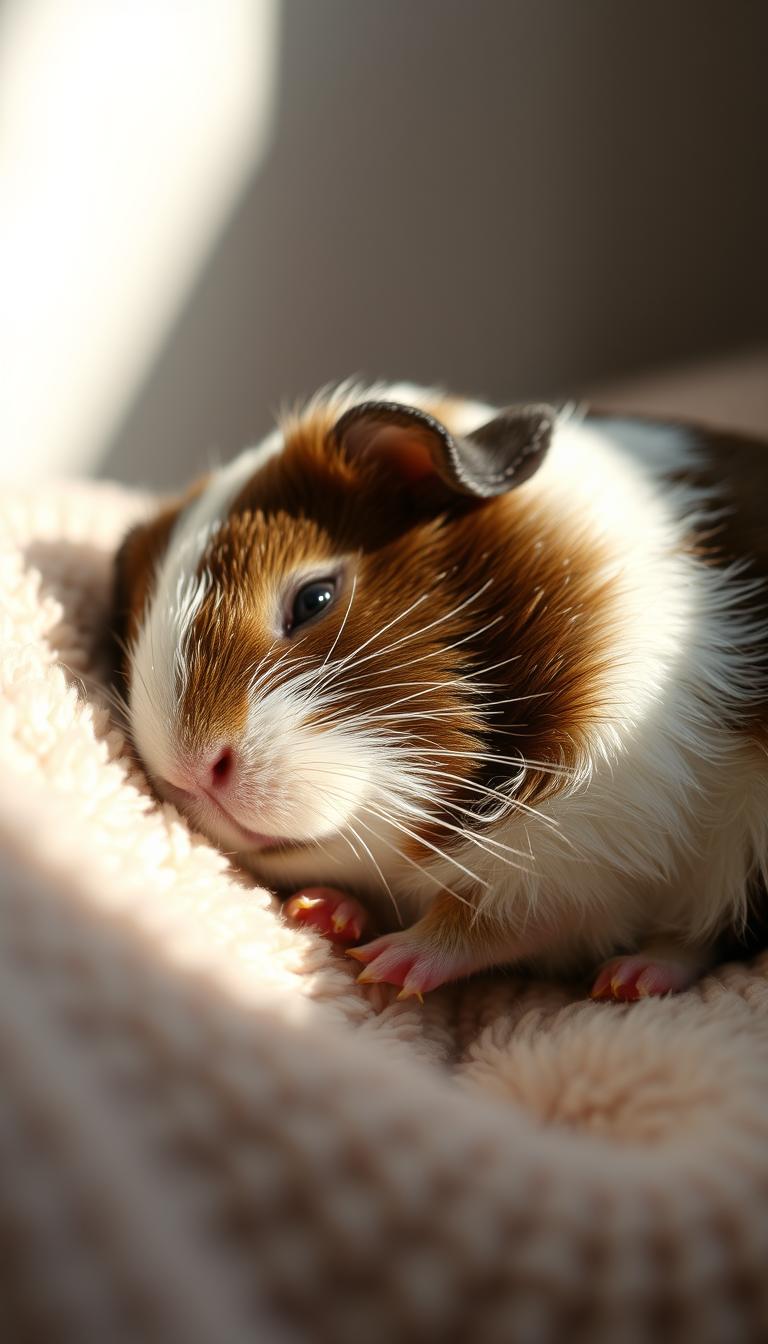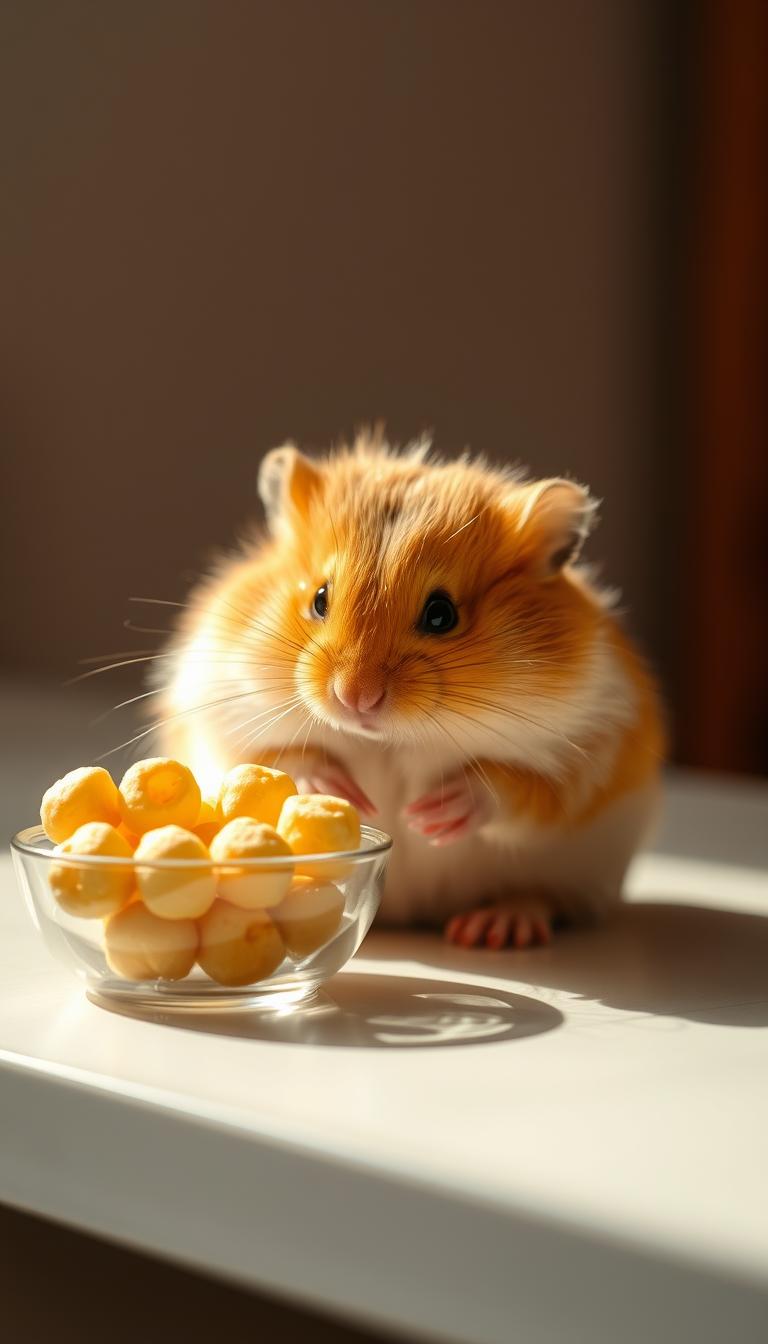Rabbits require fiber above all else as their primary food source. Rabbits even have a special organ called a “cecum”, which allows them to digest fiber effectively. The cecum utilizes bacteria and yeast to ferment fibrous materials. Finally, these materials are excreted in what are called cecotropes, from which rabbits absorb vitamins and fats.
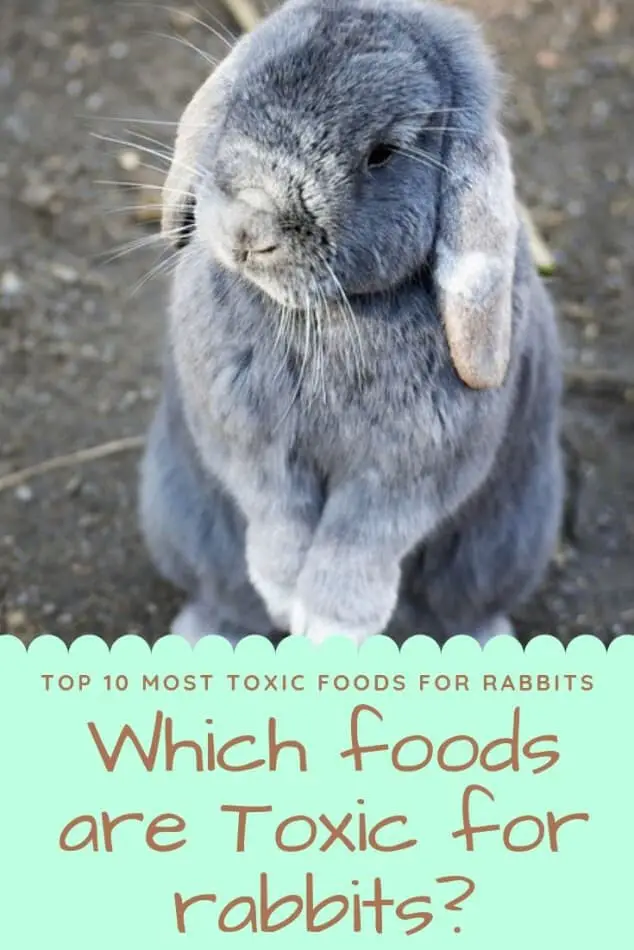
This whole process creates a very delicate balance; one which can easily be thrown off. Sugars and starches are foods which are particularly toxic to rabbits. In addition, there are many foods that are benign to humans and other animals, yet to rabbits, sickening, or in extreme cases even deadly.
Table of Contents
Toxic or harmful foods that rabbits should avoid
- Peas
- Cauliflower
- Bread, Pasta and Crackers
- Animal Products
- Nuts
- Avocados
- Lettuce
- Corn
- Onions
- Apple Seeds
Fortunately, if you read our article you can learn to easily avoid these harmful foods!
If You are Not Sure if a Food is Safe, Do Not Feed it to Your Bunny
Following are some foods that may seem harmless but are in actuality toxic to rabbits.
1. Peas Can Mess with The Digestive Systems of Rabbits
This is due to the high amounts of sugar and phosphorus they contain. This means that, in too large of doses, they can be considered toxic. Rabbits are however rather fond of peas; in small portions and rarely, they can be okay.
2. Cauliflower Causes Severe Discomfort in Rabbits
This includes gas, bloating and general inflammation, making for a very unhappy bunny. Only the leaves of the cauliflower plant are recommended to feed to rabbits. These can make for a fibrous, healthy and tasty snack.
3. Bread, Pasta, Crackers and So on Are Very Harmful To Rabbits
Rabbits are prone to something called “enterotoxemia,” which refers to an excess of harmful bacteria in the intestinal tract. Any high-sugar foods can put rabbits at risk of this, especially high carb/comparatively low fiber foods, such as bread, pasta, crackers, cookies, cake, etc. All of which are foods that are toxic to rabbits.
These foods are bad for most pets. In rabbits, they can be deadly, leading to the ultimate shutdown of the digestive system. Needless to say, you should never feed these things to your rabbit – not even a little!
Junk food like chocolate is also extremely harmful. A potent rabbit poison, chocolate contains caffeine, which, while safe for humans in small doses, can give a rabbit a heart attack.
4. Because They Are Herbivores, Rabbits Cannot Eat Animal Products
As obligate herbivores, rabbits are simply not equipped to digest meat, eggs, or dairy. Never feed them these things, as it will make them very sick. You are very unlikely to find a rabbit that will eat animal products anyway!
5. Avocados Are Poison to Rabbits

Avocados are one of the deadliest foods for rabbits and should therefore never be fed to them in any quantity. Avocados contain what is called “persin,” something which can cause breathing trouble, behavioral changes, and even heart failure in rabbits. Needless to say, you must keep avocados far away from your bunny!
The outer skin is in fact one of the most toxic parts of the avocado, so even if your rabbit doesn’t get far into the fruit, the harm will be done. Should your rabbit accidentally ingest avocado, seek medical help from your vet immediately.
6. Nuts Have Virtually No Nutritional Value for Rabbits
Rabbits can eat small amounts of nuts without taking harm, but it is still not recommended. Nuts offer little to no nutritional value, and they are high in fat, which can be hard on the stomach of a bunny. Some are even toxic for rabbits, such as macadamia nuts.
7. Lettuce Is Not Actually Good for Your Bunny
Surprisingly enough, rabbits will eat iceberg lettuce, but this plant can make them sick. Light-colored leaves such as lettuce leaves, contain high amounts of what is called lactucarium. This is something that can cause runny stools in rabbits. Iceberg lettuce, in particular, offers little to no fiber or nutrients to rabbits.
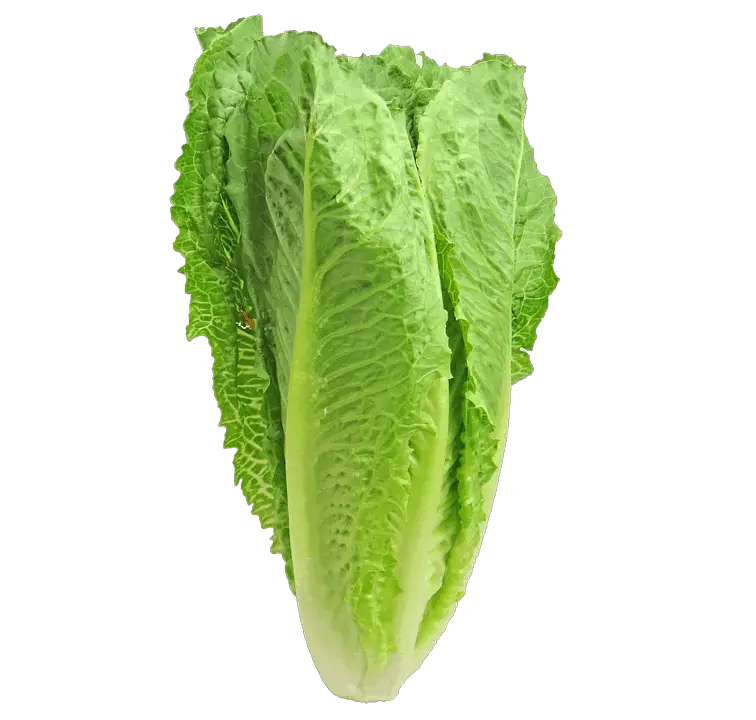
Romaine lettuce is better in this regard, yet it still contains lactucarium. Advised is to avoid feeding rabbits lettuce altogether. Spinach is also harmful, as it contains oxalic acid. The same goes for mustard greens, kale, and parsley. Instead, opt for celery leaves, or another rabbit-safe alternative.
8. Rabbits Cannot Digest Corn
Specifically, rabbits cannot digest corn hulls, which are the shells on the outside of corn kernels. This means there is a risk that they will become lodged in the digestive tract, which can lead to a variety of complications. This is another food you should avoid feeding your rabbit entirely.
9. Onions Are Toxic to Most Animals, Including Rabbits
Many know that dogs and cats should not be fed onions. Less known is that rabbits should not consume them either. In fact, onions are poisonous to most animals.
When onions are ingested, rabbits will develop a condition called Hemolytic Anemia, and many rabbits even have an anaphylactic reaction to onions. This is one of the plants that rabbits avoid in the wild instinctually.
A domestic bunny will not be as worldly-wise and may decide to sample these or other harmful plants. We recommend that you fence off any vegetable areas in your garden from your lop-eared friend. Particularly if they contain onions, garlic, and the like as these are definitely among the foods which are toxic to rabbits.
10. Apple Seeds Contain Arsenic, Which Is Poisonous to Most Animals
Rabbits love the occasional sweet treat, like apples and other rabbit-safe fruits. Be sure however to remove the seeds from the apple. This is because apple seeds contain arsenic – a substance known for its toxicity to humans and animals alike. Humans rarely take harm from such small doses as are in apple seeds. Animals are smaller, though, especially rabbits, and they can become sick. Remember to remove the seeds the next time you are tossing an apple core to your bunny!
These are some of the foods most often mistakenly fed to rabbits, whether unknowingly, or by accident when a rabbit gets into a garden or other plants. There are many foods that can do your rabbit harm, which you must remain aware of.
Rabbits, unlike most animals, are not capable of vomiting, which means that poison has a hard time leaving their system. Even a tiny dose of something toxic can cause serious complications for these sensitive creatures.
Signs that your rabbit has eaten something bad for them.
Signs of poisoning do not always manifest immediately. Lethargy, behavioral changes and breathing troubles may suggest that your rabbit has eaten something harmful. When it comes to the possibility of poisoning, opt to be safe rather than sorry. Should your rabbit ingest something you think may be dangerous, take them to the vet immediately.
What does the word toxic to pets really mean? See the true definition here.
Foods perfect for rabbits
Fortunately, there are many healthy, fiber-dense, and nutrient-rich options out there for rabbits. Some of the best of these are as follows:
Timothy Hay is Very Nutritious for Rabbits
Hay of all kinds is recommended for rabbits, most notably Timothy hay. This is because Timothy hay is packed with the most nutrients; alfalfa, on the other hand, is less nutritious comparatively, and contains more calcium than is strictly healthy. Be sure not to allow hay to become dirty or moldy. Clean hay should be available for your rabbit every day.
Bok Choy is a Great Supplemental Rabbit Snack
Some rabbits are very fond of Bok choy, and the fibrous plant can certainly make a healthy snack.
When introducing your bunny to Bok choy, keep an eye out for signs of bloating or gas. See how the plant affects them individually. Some rabbits tolerate Bok choy fine, while others may experience mild tummy troubles.
At all times, feed Bok choy to your rabbit sparingly, as a supplement to their usual fare (primarily hay, rabbit pellets, etc.).
Brussels and Other Sprouts are Great for Rabbits
Sprouts are nutrient-dense, and an excellent source of hydration for rabbits. Hydration is key to kidney health in animals of all kinds. Feeding rabbits fresh, rabbit-safe fruits and veggies can greatly improve the health of their kidneys, and hence their overall longevity. Sprouts contain lots of fiber, too.
Celery is Mostly Fiber and Water and Ideal for Rabbits
Celery is chock-full of fiber, and we highly recommended it for rabbits. Most of the celery consumed by rabbits goes right to the cecum, where it is promptly relegated to cecotropes, and absorbed from there as nutrients and fats.

The rest of the celery is comprised mainly of water, therefore promoting the health of the kidneys. All parts of celery are safe to feed your bunny. They are known to find the leaves and stalks tasty.
Squash Makes a Lovely Seasonal Treat for Rabbits
Pumpkin, squash, and the like are a well-known favorite among rabbits. They have a taste for the rich, flavorful plants, and from them, they can derive various nutrients and minerals. Of course, squash is also high in sugar. The high-fiber content helps this to digest more slowly than some other high-sugar plants. It is still advised to feed this to rabbits only in small portions, ideally as a seasonal treat.
Rabbits Enjoy Wheat Grass, Which Can Make a Healthy Choice
Wheatgrass should not comprise the majority of your rabbit’s diet but instead, supplement its hay and pellets. Your rabbit is sure to thank you for wheatgrass, as they often regard the tender plant as a succulent delicacy. Let your rabbit munch, but do not overfeed them on wheatgrass. Even with rabbit-safe foods, moderation is key.
Carrots Can Be a Nice Treat for Rabbits
Contrary to what cartoons would have you believe, rabbits do not actually eat root plants naturally. This includes carrots. That is not to say that rabbits will not like them as a treat! Carrots are a sweet and tender snack that your rabbit will doubtless enjoy. Just portion the carrots out accordingly. An excess of carrots can result in an excess of sugar, and hence consequential digestive issues.
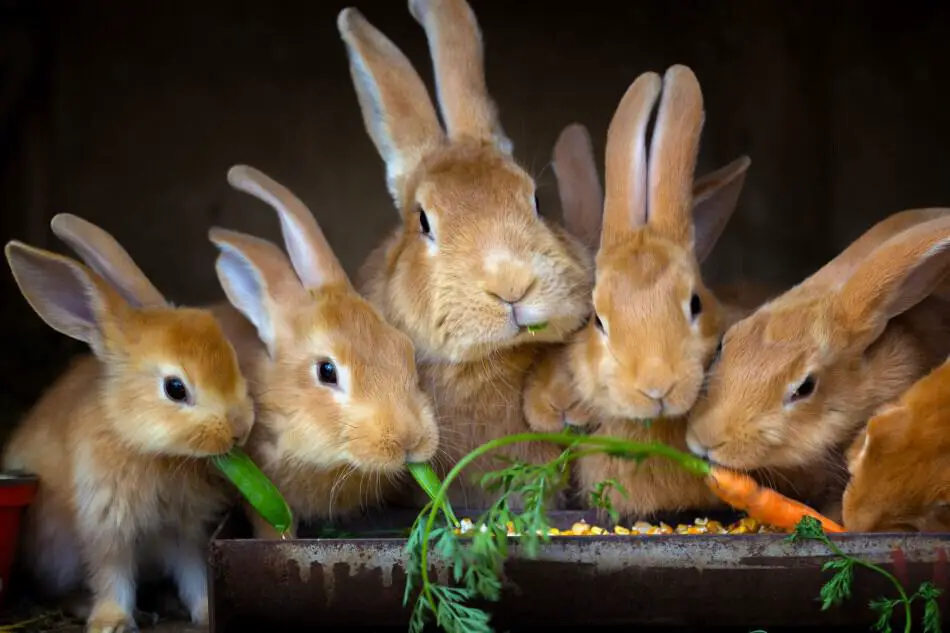
Small Amounts of Bananas are a Treat for Rabbits
Rabbits are known to love bananas! They may even beg for the treat, which may lead you to wonder if you can share. In fact, bananas are rabbit-safe, but only in small portions. You should not feed a rabbit a piece of banana any larger than an adult’s thumb, and only occasionally.
Seedless Apples are a Fantastic Rabbit Snack Choice
While the seeds of apples are not safe for rabbits, the skin and flesh are fine.
In fact, rabbits tend to regard apple slices as treats. Because apples are high in fiber, despite how sugary they are, they should not do harm to your bunny in small to moderate amounts. Feed your rabbit only a couple of slices, and not too frequently.
Vitakraft Slims with carrot
These are one of our favorite foods to feed our rabbits. VitaKraft Carrot Slims are tasty, crunchy carrot treats beneficial to all small animals and has been specifically formulated and contain the perfect balance of foods and vitamins for your rabbits. Each bag is 1.76 ounces
We buy ours from Amazon as they offer fast free delivery if you’re a prime member. They are easy-to-digest nibbling treats made with harvest fresh grains and carrot. We use these as a supplement food along with our normal hay, and staple rabbit grain food Ecotrition.
Conclusion: Which foods are toxic to rabbits?
Like humans, rabbits are individuals and will have their own preferences, intolerances, and the like. Avoid foods known to be poisonous entirely.
Also advised is to keep an eye on your rabbit to see how they tolerate even foods considered to be rabbit safe. Some of these foods may still cause your rabbit gas, bloating and other discomforts. They should be avoided along with toxic foods which may be considered as toxic to rabbits. After all, you want your rabbit to be comfortable and happy in every way!
A specially made diet, comprising mostly of hay and reputable rabbit pellets, and supplemented with rabbit-safe greens and snacks, is ideal.
The proper diet is paramount to rabbit longevity. Feed your rabbit right, and give them the love they deserve, and you can help your lop-eared friend stick around and live happily into their golden years.

